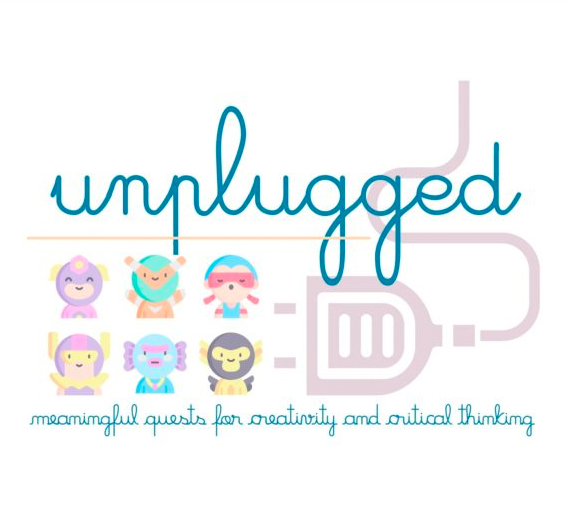Unplugged
Creativity and civic engagement: The UNPLUGGED project aims to release a board game of quests dedicated to understanding the societal challenges of the 21st-century and to the development of critical thinking for children in primary school

INFOrmation
Duration of the project:
from 1/03/2021 to 28/02/2023.
Description
This project, coordinated by the University of Aix-Marseille, has been approved and funded by the Erasmus + Programme under the extraordinary calls launched in 2020 to support digital education readiness and creative skills in the framework of the COVID-19 sanitary crisis. The project aims to create a quest game, composed of several “Do-It-Yourself” and unplugged activities, based on project-based learning and inquiry methodologies to stimulate exploration, creativity, and learning. civic engagement.
CROSS-COOPERATION BETWEEN FORMAL AND INFORMAL LEARNING ECOSYSTEMS
Educational and cultural institutions have been strongly affected by the COVID-19 crisis, implying to reinvent the way of delivering content to young people in a creative way while maintaining strong educational commitments, even in distance learning. UNPLUGGED was designed within this framework to support the dialogue between formal and informal learning ecosystems, including schools, museums, libraries, associations, and families, towards the development of joint creative practices and allowing to work on the learners positioning as critical thinkers and citizens, facing the 21st-century societal challenges. To achieve this overall objective, the partners will work on the creation of a game composed of quests integrating educational content that can usually be found within the walls of museums dedicated scientific culture and intended for the youngest. All the gamified activities created during the project will be distributed both in class and at home, using Do-It-Yourself learning mechanisms. These quests will be based on an inquiry approach using exploration methods and integrating learning by doing through artistic or DIY projects and unplugged programming challenges specifically aimed at enhancing logical and critical thinking, using various games and puzzles, cards, ropes, coloured pencils … and appealing to the creativity of the students.
The quests have been divided into 7 worlds responding to the challenges of the 2030 Agenda for Sustainable Development and integrating the Sustainable Development Goals:
World 1 – Inclusive society
World 2 – Agri-food challenges
World 3 – Clean and affordable energy
World 4 – Climate actions and Sustainable cities
World 5 – Life under and on earth
World 6 – Sanitary crisis under COVID-19 and beyond
World 7 – Technology-driven challenges in an inclusive world
Each quest will consist of various challenges based on the citizenship approach, appealing to the curiosity and creative spirit of the children. Additional unplugged activities using programming, calling on critical thinking, will be offered at the end of each level to unlock the following steps.
To meet teachers’ challenges in terms of follow-up, as well as the current sanitary constraints, the game board will be fully digitalized, making it possible to share the exploration routes of the different classes with other schools at a European scale in an “adventure” mode.
Coordinated by the University of Aix-Marseille, the project envolves Explora, ZeUGMA OOD e Muzeiko Foundation (Bulgaria), Digitale Wolven vzw (Belgium), Hands On! International (Austria), La Fabulerie and the University of Côte d’Azur (France).
USING GAME MECHANISMS FOR STIMULATING EXPLORATION AND CREATIVE MIND-SET
Using games in education is a great mean of discovering the surrounding universe, increasing the level of interactivity and motivation for the children to learn and explore. Gamified experiences are hence more and more popular in the educational systems as they allow the children to acquire new knowledge through diverse stimuli, increasing both motivation and capacity to retain the flow of information. When the objectives of a game are focused on solving real problems, it is then possible to translate concepts into understandable practices and competencies to solve the challenges of real life. Indeed, experiments have shown that the transition from the game environment to reality is smooth, allowing players to apply the concepts learned in a fun way in real life.
SUPPORTING THE 21ST-CENTURY CITIZENS AND DEVELOPING CRITICAL THINKING
In the long term, UNPLUGGED aims to participate in the development of citizenship education as a set of knowledge, skills and attitudes that allow children to recognize the values necessary for living in the community. At the educational level, the development of children’s citizenship is part of the overall school training project. Supported by all the teachers, this focus contributes to the transmission of values and principles related to living in our democratic societies. This commitment is reflected in the dissemination of new knowledge adapted to diverse contexts, highlighting the need for new skills allowing children to face a challenging innovative, creative, and technology-driven environment. The COVID-19 situation is a perfect example of the need to develop problem-solving skills to better approach complex situations with the proper understanding keys, from an early age.
The UNPLUGGED partners have already started their work on the first part of the project’s development: the creation of a game mechanism combining the benefits of the playful approach while targeting clear educational objectives shared by teachers, implementing a hybrid learning environment: an unplugged universe using programming without a screen coupled with DIY and creative activities on one hand to develop logical reasoning, and on the other hand, the consolidation of a virtual community to maintain the links between formal and informal ecosystems.If the rules of the game will be published by the end of 2021, a draft scenario has been defined.
